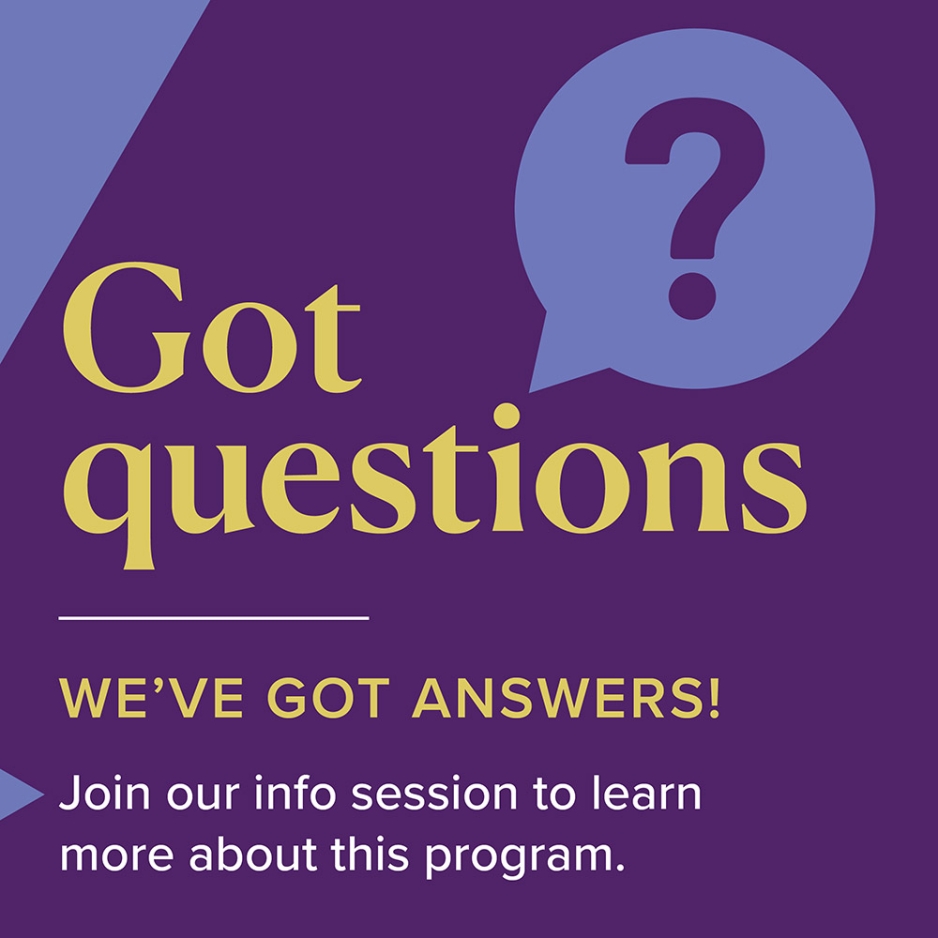Overview
Our eight-month Accounting advanced diploma program provides graduates with a deeper knowledge and understanding of accounting principles needed in business or accounting firms. Work towards your completion of the prerequisites for the Chartered Professional Accountants Professional Education Program (CPA PEP) accounting designation administered by the Chartered Professional Accountants.
Graduates find employment in a wide range of challenging and rewarding careers. Potential career opportunities may include accounting technician, bookkeeper, accounts payable clerk, accounts receivable clerk, payroll clerk, and tax return specialist.
Some graduates decide to pursue university studies in accounting and work towards obtaining their Chartered Professional Accountant (CPA) designation.
Find out more about our Accounting Transfer courses.
Program Learning Outcomes
- Critical Thinking & Knowledge: use core specialization knowledge in solving business problems.
- Ethical Perspective and Social Responsibility: identify organizational activities to reduce unethical behaviour.
- Collaboration: work effectively in diverse teams, supporting team performance to achieve organizational goals.
- Communication: present effective business communications in a variety of formats.
- Business Strategy: strategize to plan for changes in business.
Examples of what graduates from this program can do:
- Maintain financial records, prepare financial statements, and analyze financial data.
- Record financial transactions, maintain general ledgers, and prepare financial reports.
- Process employee paychecks, manage employee benefits, and maintain accurate payroll records.
- Manage invoices, process payments, and maintain accurate records of all financial transactions.
- Prepare tax returns for individuals and businesses in accordance with tax laws and regulations
Success Factors
- You might be a good fit for this program if you would enjoy:
- Building upon your previous degree to work in the accounting field
- Demonstrating a strong work ethic and attention to detail
- Adopting an ethical and socially responsible mindset
- Adapting to changes in business environments
- Completing tasks and delivering results
For Co-op program only: A valid driver’s license and access to a vehicle is strongly recommended given the potential need to travel for co-op placement.
The industry and program environment require individuals to:
- Have excellent written and verbal communication skills to effectively communicate with clients, colleagues, and stakeholders.
- Think analytically and critically to make informed decisions that will benefit the organization.
- Manage time effectively and prioritize tasks to meet deadlines.
- Lead teams and manage projects effectively to ensure organizational success.
- Uphold ethical and moral standards while conducting business and making decisions.
- Have a good understanding of technology and be able to utilize it in their work to streamline processes and increase efficiency.
- Possess a good understanding of financial management and be able to make financial decisions that benefit the organization.
- Have excellent customer service skills to provide quality service and maintain positive relationships with clients.
- Be adaptable and committed to ongoing learning and professional development to stay current with industry trends and best practices.
Interested in exploring similar program options?
We've got you covered! Here's another great program option to consider.
Admissions
Admission Requirements
- Two-year diploma or university degree
- Entry level accounting knowledge is required. Applicants without this will be required to take ACCT-0003 Financial Accounting 1 and ACCT-0004 Financial Accounting 2 (or equivalent) prior to the start of the program. To register, contact the Registrar's Office.
English is the language of instruction at Assiniboine. All applicants educated outside of Canada or in a country not on the test exempt list are expected to meet the English language proficiency requirements. IELTS score of 6.0 with no sub-score less than 5.5 or equivalent is acceptable for this program.
READY TO TAKE THE NEXT STEP IN YOUR EDUCATION JOURNEY?
Start your online application today and join Assiniboine College!
DON'T HAVE A DEGREE OR DIPLOMA? START HERE.
We understand that a fulfilling career in Accounting is not only for those who already hold academic qualifications. If you're at the beginning of your journey and do not have a diploma or degree, consider exploring our Business Administration program at Assiniboine, where you can specialize in Accounting, Finance, Human Resource Management or Marketing.
Careers & Connections
Career Opportunities
- Public accounting firms
- Banks
- Trust companies
- Accounting and internal auditing departments
- Industrial firms
- Federal, provincial or municipal offices
- School divisions
- Tribal councils
- Non-profit organizations
- Health care institutions
Some graduates decide to pursue university studies in accounting and work towards obtaining their Chartered Professional Accountant (CPA) designation.
Connections
Successful completion of this program may qualify graduates for advanced standing in the Chartered Professional Accountants (CPA) preparatory courses. Students may also earn advanced standing towards the Certified Aboriginal Financial Managers (CAFM) through the Aboriginal Financial Officers Association (AFOA).
Assiniboine has a number of agreements with other colleges, universities and professional organizations, making it possible to apply credit taken at Assiniboine to programs at other institutions. For information on agreements, see Articulation Agreements.
Tools & Supplies
You benefit from industry networking and guest speakers and attend classes in computer labs, regular classrooms and lecture theatre. This program uses online learning resources and instructional resources.
Program Checklists, Textbooks, and Supplies
Program Checklists:
Textbooks:
Supplies:
ASSINIBOINE BOOKSTORE
Textbooks, supplies and uniforms may be purchased at the Assiniboine Bookstore at the Victoria Avenue East Campus. Booklists are available from your school office 30 days prior to the start date of your program.
Technology Requirements
Students in this program are required to bring their own laptop for use on-campus. The laptop must meet the technical needs outlined by the program. MAC computing devices are not compatible with program software. See Technology Requirements for detailed information.
Courses & Costs
Costs
Estimated Program Costs (Domestic students)
| Credits | 60.0 |
| Tuition | $3,720 |
| Course Fees | $1,310 |
| Students' Association fees (including Health Premium) | $625 |
| Estimated textbooks, tools, and supplies | $210 |
All fees are estimated and subject to change without notice.
Estimated Program Costs (International students)
| Credits | 60.0 |
| Tuition | $16,140 |
| Course Fees | $1,310 |
| Students' Association fees (including Health Premium) | $625 |
| Required Health Insurance | $825 |
| Estimated textbooks, tools, and supplies | $210 |
All fees are estimated and are subject to change without notice. All international students must purchase health insurance. The college adds this fee to your student account and then sends your name and fee to the insurance provider on your behalf.
For more information, visit the Fees and Charges page.
Courses
To graduate with an advanced diploma in Accounting, students must successfully complete 60 academic credits. The minimum passing grade for each course is indicated on the course outline. Course offerings are subject to change and may vary by intake.
Courses
| Title | Credits/CEUs | Elective | Distance | PLAR |
|---|---|---|---|---|
Advanced Financial Reporting (BUSN-0173)Prerequisite: ACCT-0005 Financial Accounting 3 |
6 credit(s) | Yes | Yes | No |
Advanced Management Accounting (ACCT-0056)Prerequisite: ACCT-0052 Intermediate Mgmnt Accounting |
6 credit(s) | Yes | No | No |
Advanced Software (COMP-0598)Prerequisite: COMP-0597 Software Applications |
6 credit(s) | No | No | No |
Audit and Assurance (BUSN-0174)Prerequisite: ACCT-0005 Financial Accounting 3 |
6 credit(s) | Yes | Yes | No |
Business Law (LAWG-0093)Knowledge of laws affecting your commercial activity can help you avoid unnecessary legal and, consequently, financial liabilities. Fundamental legal principles, as well as specific commercial transactions, are discussed in this course. |
6 credit(s) | Yes | Yes | No |
Canadian Business and Society (BUSN-0166)Students explore the complex business environment and the relationships organizations have with civil society, the natural environment and each other. Through this examination, students learn that ethical decision-making is critical to the successful management of any organization. Topics include changing economic, political, social and cultural forces and their influences on business and society; the continuum of socially responsible management and ethical business practices; and the challenges and opportunities that influence where an organization fits on the continuum. Special attention is given to Indigenous history and developments. |
6 credit(s) | Yes | Yes | No |
College Foundations (PEDV-0356)This course improves students' ability to navigate the college experience and environment, including student's rights, roles, and responsibilities. In this course, students reflect on their skills, attitudes, and expectations and develop learning strategies to help them to become successful, resilient, and self-directed learners. The course covers topics such as success in online learning, time management strategies, learning strategies, assessment taking strategies, academic integrity, information and digital literacy, and wellness, among others. It integrates elements of student orientation. |
0 credit(s) | No | No | No |
Corporate Finance (BUSN-0165)Prerequisite: ACCT-0004 Financial Accounting 2 |
6 credit(s) | No | Yes | No |
Financial Accounting 3 (ACCT-0005)Prerequisites: ACCT-0004 Financial Accounting 2; MATH-0107 Math for Business |
6 credit(s) | No | Yes | No |
Financial Accounting 4 (ACCT-0007)Prerequisite: ACCT-0005 Financial Accounting 3 |
6 credit(s) | No | Yes | No |
Indigenous History (INDG-0005)In order to make sense of current issues and developments in Indigenous communities, learners need an understanding of the history of these communities and their relationships with the crown and/or state. This course gives the learner the opportunity to expand their knowledge of the history of relationships between Indigenous and non-Indigenous societies, their institutions and the unique context of these histories and the current realities and initiatives, considering Indigenous culture. While it is impossible in one course to consider the diverse Indigenous cultures and histories within Canada, this course provides an overview of the commonalities with regard to shared histories, significant events, and common core aspects of Indigenous cultures. |
6 credit(s) | Yes | No | No |
Indigenous Human/Fiscal Issues (INDG-0006)This course examines some of the human resource and financial issues a financial officer may face when working in an Indigenous context. It offers participants the opportunity to acquire the essential skills and knowledge needed to fulfill one of the roles of a financial officer: that of a human resource manager. The framework for course discussions is current initiatives (both at the national and professional level) and addressing issues related to the present fiscal relationship between Indigenous governments and the Canadian state, with particular attention given to issues related to accountability. |
6 credit(s) | Yes | No | No |
Information Management Tech (BUSN-0175)This course will introduce the theory and application of information system concepts, infrastructure, and life cycle which support the activities of the organization. Specific attention is given to information system structure, the role in business processes, and the security and control of information. |
6 credit(s) | Yes | Yes | No |
Intermediate Mgmnt Accounting (ACCT-0052)Prerequisite: ACCT-0050 Introductory Mgmnt Accounting |
6 credit(s) | No | Yes | No |
Introductory Mgmnt Accounting (ACCT-0050)Prerequisite: ACCT-0004 Financial Accounting 2 |
6 credit(s) | No | Yes | No |
Performance Management (BUSN-0177)Prerequisite: ACCT-0050 Introductory Mgmt Accounting |
6 credit(s) | Yes | Yes | No |
Sage Accounting Software (ACCT-0051)Prerequisite: ACCT-0003 Financial Accounting 1 |
6 credit(s) | Yes | No | No |
Statistics 1 (MATH-0002)This course acquaints students with the concepts of statistical methods and theory as applied to economic and business data. It examines frequency distribution, probability, probability distribution, sampling, estimation and hypothesis testing. |
6 credit(s) | Yes | Yes | No |
Statistics 2 (MATH-0003)Prerequisite: MATH-0002 Statistics 1 |
6 credit(s) | Yes | Yes | No |
Taxation 1 (BUSN-0171)Prerequisite:ACCT-0004 Financial Accounting 2 |
6 credit(s) | No | Yes | No |
Taxation 2 (BUSN-0178)Prerequisite: BUSN-0171 Taxation 1 |
6 credit(s) | No | Yes | No |
Frequently Asked Questions
When is the next program information session?
Program information sessions are completely free to attend, and we invite you to bring a guest along as well. It's a good idea to register in advance so we know you're coming.
To find the complete schedule for our program information sessions and to RSVP, visit the program information session page.
I have a Mac laptop, can I use that?
No. MAC computing devices are not compatible with Business Administration or Office Administration program software. Refer to assiniboine.net/tech for detailed information.





